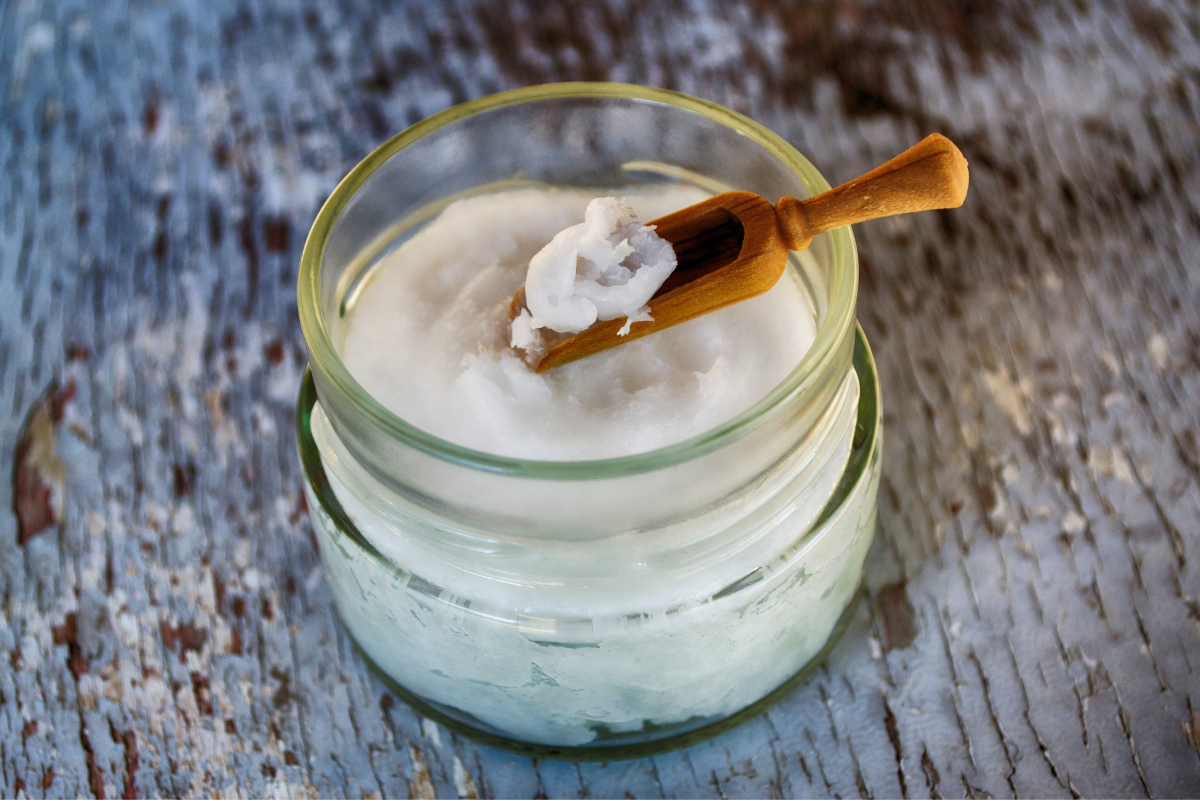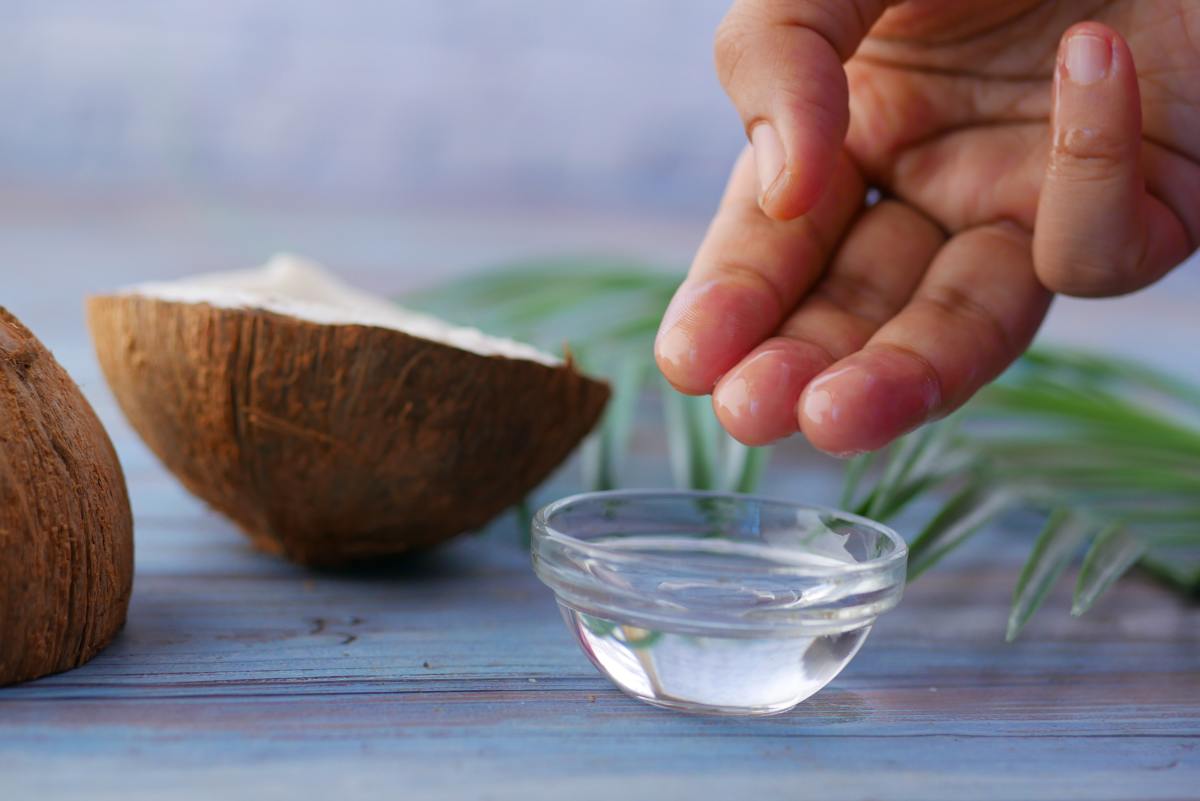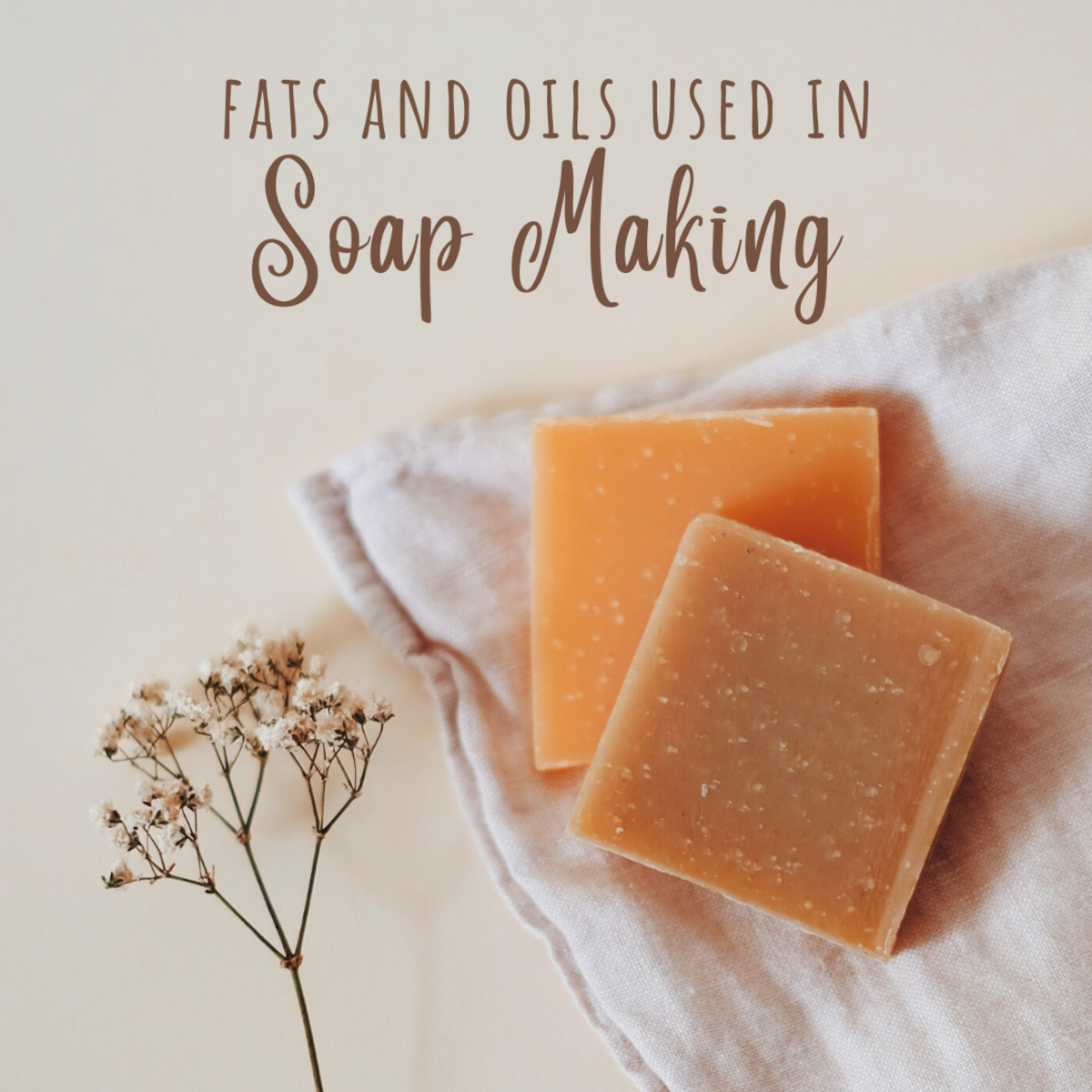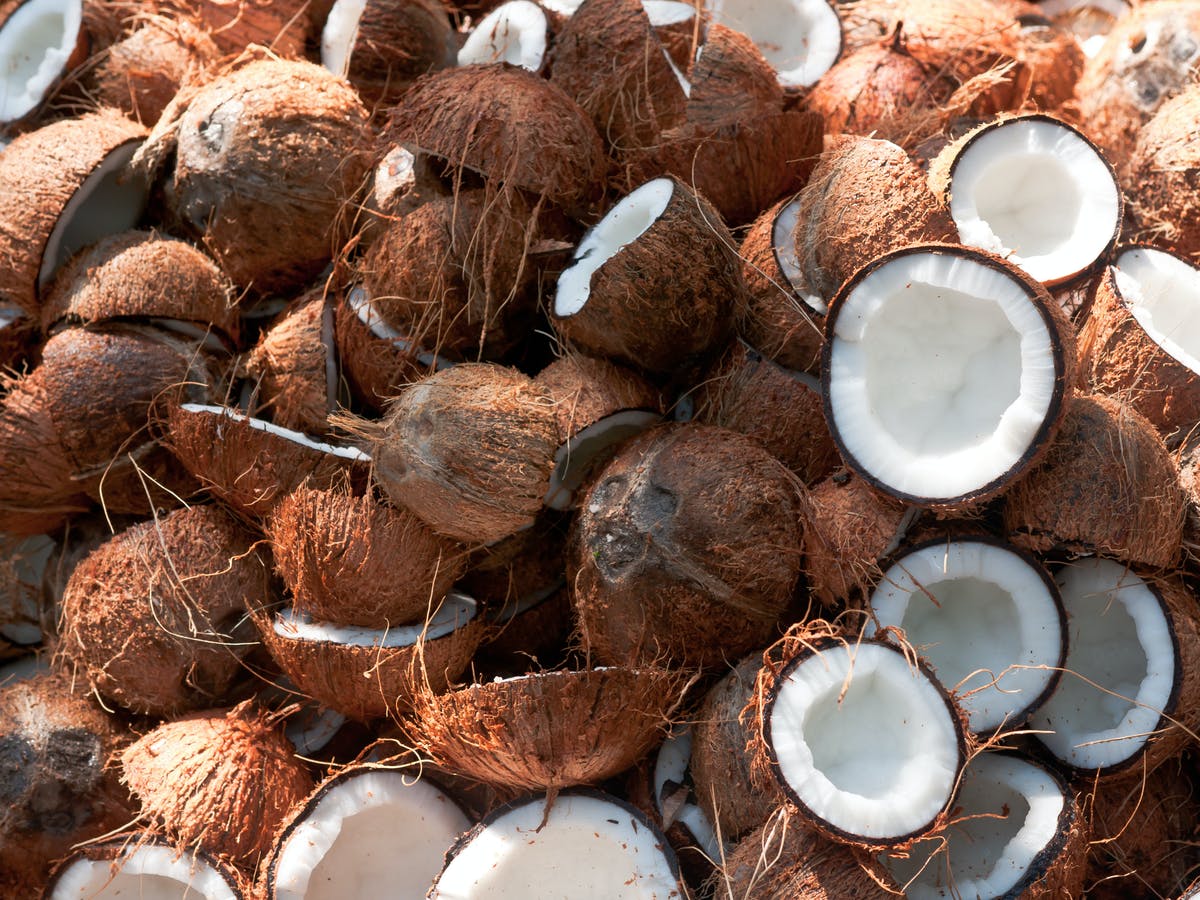The Truth About Coconut Oil and Saturated Fats
Media Blitz for Polyunsaturated Fats
In the 1980s there was a media blitz telling everyone that they should switch to using polyunsaturated fats and oils in their diets instead of saturated fats. At the same time the American agri-business sector quickly became dominated by soy, safflower and sunflower oils. Most food switched at the same time to using polyunsaturated fats. Remember: “I can’t believe it’s not butter!”
Well it’s been 30 years since the developed world fell in love with polyunsaturated fats and hydrogenated oil, and has the expected decline in obesity, heart disease, cancer and diabetes happened? No. It is odd that at the same time, people in developing countries, especially those with a diet high in saturated fats such as coconut oil, continue to be lean and healthy people who rarely die of heart disease, cancer and other ‘western’ maladies. Instead these people die of diseases such as malaria, cholera, AIDs and from malnutrition.
Is this coincidence?
Magarine Goes Rancid Quickly
So What’s the Difference between saturated and polyunsaturated fats?
Firstly, saturated fats such as virgin coconut oil and butter do not go rancid for a long time. In contrast margarine and soy oil goes rancid in just a few hours. Before you have fully digested food containing polyunsaturated fats the fat has gone rotten or rancid in your body. This difference has lead many scientists to believe that coconut oil and butter etc. have an antioxidant property (Peat, Raymond, Ph.D., From PMS to Menopause: Female Hormones in Context). Coconut oil stays free of rancidity for over a year. The reason for the smell of stale food in fast food restaurants and other places is rancid polyunsaturated fats.
Virgin Coconut Oil
Thyroid Stimulation and Anti-Aging Effects of Coconut Oil
Research has shown that far from increasing cholesterol levels, coconut oil in your diet actually reduces cholesterol (IA Prior, F Davidson, CE Salmond, Z Czochanska. Cholesterol, coconuts, and diet on Polynesian atolls: a natural experiment: the Pukapuka and Tokelau island studies.). This might seem contradictory until you consider the importance of the thyroid gland. Whereas, polyunsaturated fats suppress the thyroid gland, coconut oil actually stimulates the thyroid gland. It is this stimulation that has many positive health benefits including lowering cholesterol levels in the body. Virgin or organic coconut oil helps create thyroid hormones that in large enough amounts is converted by enzymatic process to the anti-aging steroids pregnenolone, progesterone and DHEA. These substances are required to help prevent heart disease, senility, obesity, cancer and other diseases associated with aging and chronic degenerative diseases.
Consider for a moment, Inuit people. They have a diet completely dependent on fish that is high in saturated fats. Yet it is these saturated fats that give Inuit people hyperactive thyroid glands. As a result they have very low cholesterol levels and near zero rates of heart disease in their communities.
Consider a different scenario: farmers in the USA in the 1940s used to feed their cattle on coconut oil but complained because their livestock remained lean. They then switched to corn and soybean feed. These feeds suppress thyroid activity and as if by magic the farmers have over-weight cows to maximize profits.
Another telling part of the equation is cancer. With suppressed thyroid glands we have lowered immunity to fight disease. An experiment was carried out on lab rats. They were injected with chemicals to induce cancer. Amongst the rats fed on corn oil 32% developed cancer, whereas amongst the rats fed on coconut oil only 3% developed cancer (Antigenotoxicity of Dietary Coconut Oil By Clara Lim-Sylianco, A.P. Guevara, L. Sylianco-Wu
University of the Philippines - Institute of Chemistry, College of Science Diliman, Vol 4, No 1,1992).
Coconut Palm
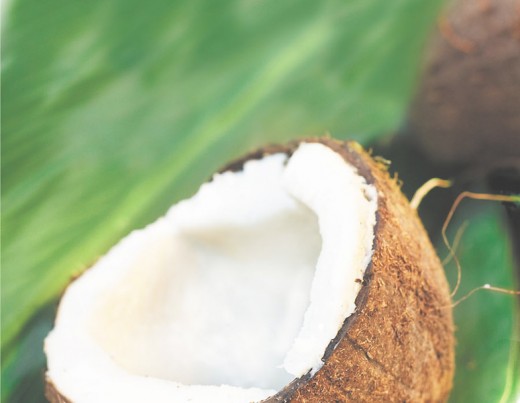
Anti-microbial Properties of Coconut Oil
Organic coconut oil contains medium chain fatty acids, lauric (C-12), caprylic (C-10) and myristic (C-14) acids. 40% of the fatty acids in virgin coconut oil are lauric acid. This is the same medium chain fatty acid that is present in mother’s milk. The body converts lauric acid to a fatty acid derivative (monolaurin), which is the substance that protects infants from viral, bacterial or protozoal infections. This was recognized and reported in 1966 (Heath Oils From the Tree of Life: Nutritional and Health Aspects of Coconut Oil By Jon J. Kabara, Ph.D.). Work by Hierholzer and Kabara (1982) showed that monolaurin has virucidal effects on RNA and DNA viruses, which are surrounded by a lipid membrane. In addition to these RNA and DNA viruses, in 1978, Kabara and others reported that certain medium chain fatty acids, such as lauric acid have adverse effects on other pathogenic microorganisms, including bacteria, yeast and fungi.
Vitamin E
Adding coconut oil to your diet is a good way to keep vitamin E at healthy levels in your body. It is this property of coconut oil which even the most reactionary scientists acknowledge. And it is this property that makes coconut oil a popular skin moisturizing agent for beauty products.
The Truth about the Low Fat Diet
The most well-known advocate of the low fat diet was Nathan Pritikin. Actually, Pritikin advocated elimination of sugar, white flour and all processed foods from the diet and recommended the use of fresh raw foods, whole grains and a strenuous exercise program; but it was the low fat aspects of his regime that received the most attention. Adherents found that they lost weight and that their blood cholesterol levels and blood pressure declined. The success of the Pritikin diet was probably due to a number of factors having nothing to do with reduction in dietary fat—weight loss alone, for example, will cause a reduction in blood cholesterol levels—but Pritikin soon found that the fat-free diet presented many problems, not the least of which was the fact that people just could not stay on it. Those who possessed enough will power to remain fat-free for any length of time developed a variety of health problems including low energy, difficulty in concentration, depression, weight gain and mineral deficiencies. Pritikin may have saved himself from heart disease but his low fat diet did not spare him from cancer. He died, in the prime of life, of suicide when he realized that his Spartan regime was not curing his leukemia.
A Cover-Up
In a British study involving several thousand men, half were asked to reduce saturated fat and cholesterol in their diets, to stop smoking and to increase the amounts of unsaturated oils such as margarine and vegetable oils in their diets The other half were allowed to have a 'high fat diet', drink alcohol and smoke cigarettes. It should be obvious what researchers were trying to prove with this study, but the results were an embarrassment to those conducting the study. After one year, those on the "good" diet had 100% more deaths than those on the "bad" diet. But in describing the study, the author ignored these results in favor of the politically correct conclusion: “The implication for public health policy in the U.K. is that a preventive program such as we evaluated in this trial is probably effective. . . ." (Rose G, et al, Lancet, 1983). In other words they lied; like Pritikin they could not prove that a diet based on low fat and polyunsaturated fat was good for you.
So wake up to the truth: polyunsaturated fats are bad for you. A low-fat diet is not healthy. If you want to live longer cook with either a saturated fat such as organic coconut oil or organic butter or a monosaturated oil such as olive oil. It will improve your immunity system, stop you aging and stop you becoming obese.
Health, Coconuts and Controversial Hubs
- Coconut Flour and Gluten Intolerance
Coconut flour is a less well known coconut product that is 100% gluten and wheat free and that can be used to make short breads and cakes. - Corn, Soy and Coconut
The not so hidden fact that food quality is going down in the States and everything contains corn and corn oil; it should contain coconut oil. - Extra Virgin and Organic Coconut Oil
A look at what the difference is between virgin and extra virgin coconut oil and what is organic coconut oil. - VOCs in the Home
Did you imagine that your perfume or dry cleaned clothes were making you sick? - The Importance of Re-Purposing
Imagine the world suddenly stopped producing new consumer items tomorrow. How would we survive? The answer is by re-purposing and upcycling. - Planned Obsolescence
Until recently companies did not see that it was in their interest to build products that last forever. If they did sell a product that never wore out or broke they would quickly run out of customers. - Bamboo is one of the Answers
Turning to bamboo to make consumer products is one way to help stop deforestation. Planting more bamboo is also a good way to rectify the carbon imbalance in the atmosphere. - Are Feed-in Tariffs A Good Idea?
Since April 1st, 2010 people living in the UK are entitled to take advantage of a scheme that makes installing solar panels on your house or a wind turbine on your property much more affordable. - Green Cleaning: alternatives to normal detergents
Sadly, equal rights tend to be confined to the developed world. But what is not confined to poorer countries is the awful way we abuse the environment to get our clothes clean. - The Problem With Trying to Legislate a Revolution
The most important ideology to emerge over the last few years is environmentalism. The Green movement has progressed since the early 1980's when the first successful Green party appeared in Germany. - Conflicting Green Issues
Green is the new black. Everything should be green and environmentally friendly. Sustainability, recycling, off-setting, renewable energy, environmental certification, local sourcing and carbon footprint are the watch words of a new paradigm. - Act Now To Stop Another Oil Spill Disaster
Watching the scenes of the devastating oil spill in the Gulf of Mexico has surely made many people realize the risks and hazards the world faces in maintaining its present addiction to oil consumption. - About Coconut Flooring
Coconut flooring is a great example of sustainable flooring because it is made from a renewable resource. This makes coconut flooring more environmentally friendly than hardwood flooring. - Why Do So Many People Have Allergies
When I was a child I remember very few people had allergies or asthma. Now it seems everyone around me has either an allergy or asthma.



